
Expert panelists share their perspective on novel and combination strategies being investigated in the setting of metastatic renal cell carcinoma.

Your AI-Trained Oncology Knowledge Connection!


Expert panelists share their perspective on novel and combination strategies being investigated in the setting of metastatic renal cell carcinoma.
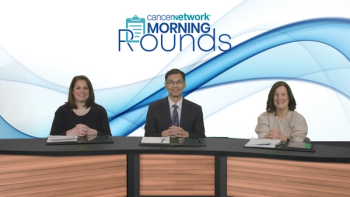
Switching focus to a second clinical scenario, key opinion leaders on metastatic renal cell carcinoma discuss the treatment landscape for favorable-risk disease.
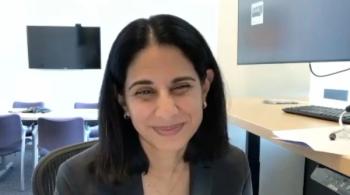
An expert from Dana-Farber Cancer Institute highlights data that supported the FDA’s approval of sacituzumab govitecan for advanced hormone receptor–positive, HER2-negative breast cancer.

Nora Biran, MD, and David Siegel, MD, offer closing remarks on the MM treatment landscape.
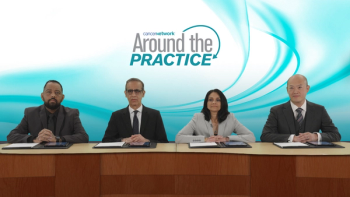
A patient with GVHD chronicles his treatment experience, and GVHD experts share thoughts on how to approach treatment.

Experts on graft-vs-host disease offer clinical insights for clinicians treating patients with GVHD.
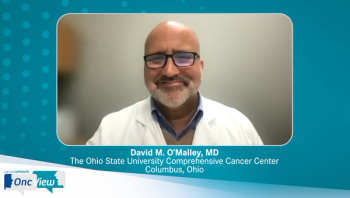
David O’Malley, MD, an expert gynecologic oncologist, details molecular profiling and risk stratification for patients with advanced endometrial carcinoma.

David O’Malley, MD, provides a comprehensive overview of endometrial carcinoma and treatment options for patients in this setting.
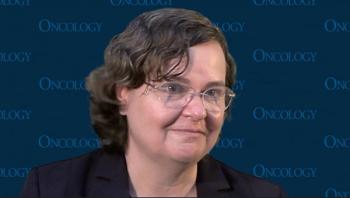
The addition of radiation to chemotherapy did not improve overall survival in patients with advanced endometrial cancer, according to an expert from Northwestern Medicine.
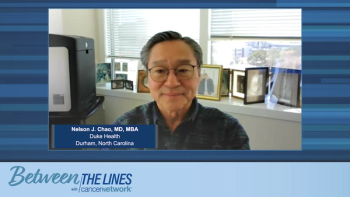
Panelists engage with a post hoc analysis of the REACH2 trial comparing early versus late treatment with ruxolitinib in patients with steroid-refractory acute Graft-Versus-Host Disease.
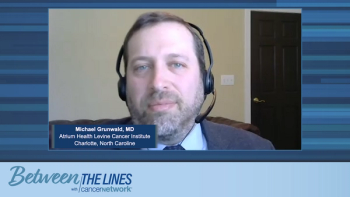
Two subject matter experts discuss a post hoc analysis of the REACH2 trial, focusing on the impact of cytopenias on treatment outcomes in patients with steroid-refractory acute Graft-Versus-Host Disease.

Before closing out their review of the first clinical scenario, panelists consider the general state of prognoses within metastatic renal cell carcinoma.

A brief review of dose hold or adjustment strategies in the setting of metastatic renal cell carcinoma and when it is appropriate to consider these options.

Practical advice on the management of renal cell carcinoma provided for healthcare professionals, patients, and caregivers alike.

The panel closes their discussion with a look at an ongoing clinical trial in transplant-ineligible NDMM.

Dr Sandy Wong reviews data from a patient subgroup analysis of the MAIA trial in transplant-ineligible NDMM.

Myeloma experts share their thoughts on the future of multiple myeloma treatment.

Experts on multiple myeloma compare their treatment sequencing strategies.

Nazy Zomorodian, NP, spoke with CancerNetwork® about the unique dosing schedule of enfortumab vedotin plus pembrolizumab following its accelerated approval by the FDA in advanced/metastatic urothelial cancer.

An esteemed panel of experts overviews new approaches being explored for treating graft-vs-host disease.

A detailed discussion on first-line treatment options for chronic GVHD and options for patients with steroid-refractory chronic GVHD.

An expert from Dana-Farber Cancer Institute indicates that urologists should refer patients with prostate cancer who present with multiple high-risk factors at surgery to a radiation and medical oncologist.

Fifteen-year results of the ProtecT prostate cancer trial may support the findings of the study’s 10-year follow-up data, according to an expert from Dana-Farber Cancer Institute.

Drs Chao and Grunwald review available treatment options as informed by NCCN guidelines for patients with steroid-refractory acute Graft-Versus-Host Disease.
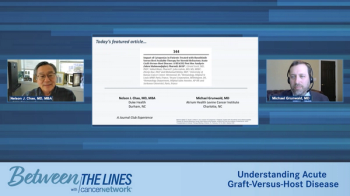
Nelson J. Chao, MD, MBA, and Michael Grunwald, MD introduce acute Graft-Versus-Host Disease (GvHD), sharing how it is diagnosed, how it differs from chronic GvHD, and common signs and symptoms.

Shared insight on the treatment armamentarium for metastatic renal cell carcinoma and how these options should be communicated with patients.

Increasing age, higher Gleason scores, and higher pathologic stages are predictors of mortality in patients with prostate cancer, according to an expert from Dana-Farber Cancer Institute.

Centering discussion on a clinical scenario of metastatic renal cell carcinoma, expert panelists reflect on optimal diagnosis and stratification methods in this setting.

Healthcare professionals reflect on recent evolutions in the renal cell carcinoma treatment landscape.

Panelists share their perspective on establishing a support network for patients undergoing treatment for renal cell carcinoma.